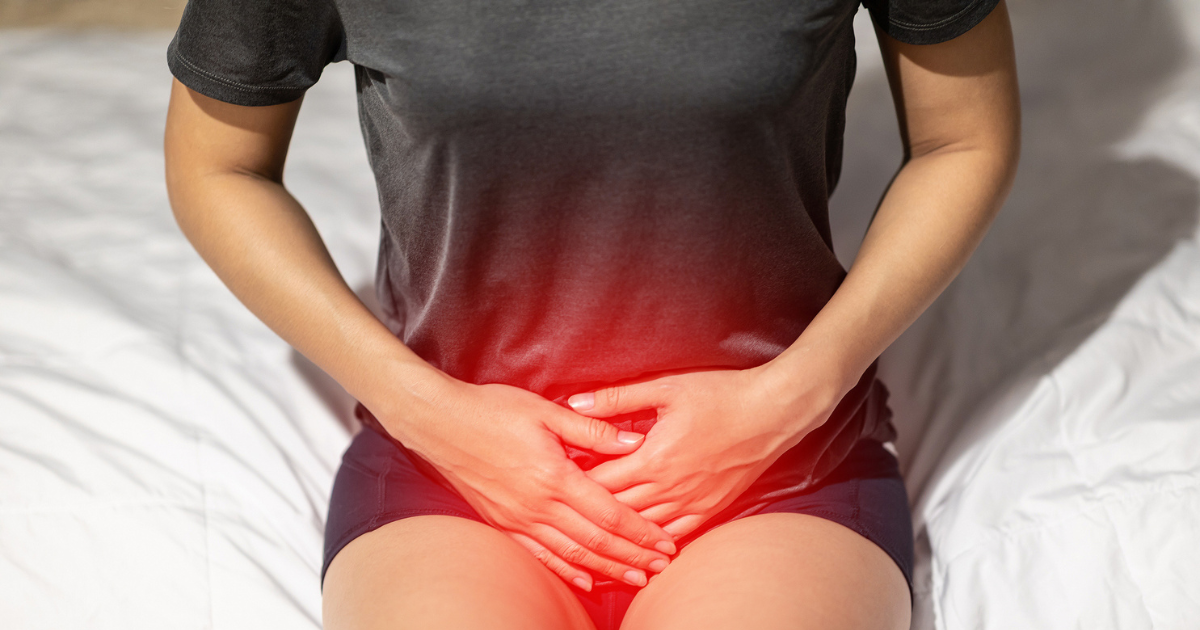Getting to the source of pelvic pain conditions

Pelvic pain conditions can be difficult to diagnose.
"Many of my patients who complain of pelvic pain are really suffering," says Kim Haynes-Henson, MD, pain specialist at Nebraska Medicine.
While women are most likely to get it, men can suffer from pelvic pain, too. Pelvic pain can often feel like sharp or burning pain in the groin area. Some common causes include inflammatory bowel syndrome, ovarian cysts, uterine fibroids, endometriosis, urinary tract infection, kidney stones or interstitial cystitis.

However, not all pelvic pain conditions are so easily diagnosed. Many patients jump from their primary care provider to their OB/GYN or urologist and they still don't have an answer.
If you have a patient who has suffered from intense pain for three to six months, we offer many interventions that can offer significant pain relief, says Dr. Haynes-Henson.
Adhesions from a past surgery can be one source of pain that is often difficult to identify. Men can get adhesions from chronic prostatitis or prostate surgery. Women may develop adhesions from endometriosis or past uterine surgeries. In addition, women who have been sexually abused may experience severe pelvic pain with no specific cause.
"My goal is to find possible causes of muscle or nerve pain and determine when it's worse or better," says Dr. Haynes-Henson. "Then I can start treating the symptoms. If it's muscle spasms, muscle relaxant medications may help; if it's nerve pain, antidepressants and anti-seizure medications; and if a patient has adhesions, a special type of physical therapy that helps loosen scar tissue can help."
If there's still no pain relief, nerve blocks, which involve injecting an anesthetic onto the nerves causing the pain, is often the next step.
Dr. Haynes-Henson performs several types of nerve blocks. These include:
Ilioinguinal and iliohypogastric block:
This block involves the nerves that serve the skin between the thigh and the abdomen. This pain is often due to an injury that may have occurred during a previous surgery or medical procedure, including laparoscopic surgery. Because these nerves extend deep into the pelvic area, the patient may feel a sharp, burning pain in the groin.
The superior hypogastric plexus block:
This block helps reduce pain in the nerves associated with the colon, rectum, testes, penis, prostate, perineum, vulva, vagina, uterus, urethra and bladder. It can also help with pain due to endometriosis, radiation therapy or cancer that has metastasized to the pelvis.
Ganglion of Impar block:
This block can reduce or eliminate pain in the "seat" region. This includes pelvic, genital, perineal and anal pain.
Trigger point injections is another treatment that is performed for intense muscle spasms in the pelvic area.
For severe lower back and pelvic pain, the spinal cord stimulator is another very effective option. This device sends electrical signals to the spinal cord to numb the pain.
Chronic Pain Management Program
For many people, there is a strong link between stress and pain. Cognitive behavioral therapy can help relieve pain that gets worse due to stress by helping patients learn better coping mechanisms. The Nebraska Medicine's Chronic Pain Management Program is designed to help people who have had chronic pain for a very long time, and may also suffer from depression, anxiety and sleep disorders as a result. In these patients, chronic pain takes on a life of its own, and actually becomes a disease, notes Dr. Haynes-Henson.
"This program helps patients by providing them with a lifestyle overhaul – providing tricks and tools to manage their pain and cope with everyday stress," says Dr. Haynes-Henson. The program has helped many people take control of their pain and get some real relief.
"Even if we can't eliminate your patient's pain, we can vastly improve his or her quality of life and the pain's severity."


